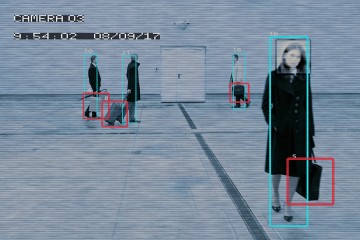Johns Hopkins University will launch a new interdisciplinary institute aimed at developing the mathematical theories that will hasten the analysis of the massive amounts of data being used to study everything from the inner workings of the human cell to the structure of the universe.
The Johns Hopkins Mathematical Institute for Data Science, or MINDS, brings together a core group of 10 researchers and a dozen other faculty members working at the intersection of mathematics, statistics, and theoretical computer science. The group plans to establish the fundamental principles that make it possible to analyze and interpret massive amounts of high-dimensional, complex data.
René Vidal a professor of biomedical engineering and director of the Vision, Dynamics and Learning Lab, has been named director of MINDS.
"MINDS will become the place at Johns Hopkins where you go if you have large data sets and need theory and algorithms to analyze them," says Vidal, an expert in machine learning, computer vision, and biomedical imaging. "We will focus on the theoretical foundations—developing new mathematical and statistical methods and guaranteeing that these methods are correct."
Vidal describes the mathematical quandary at the heart of artificial intelligence's deep learning as something of a "black box" that works not on theory but on trial and error. Computer algorithms are making giant leaps in accuracy with tasks such as identifying a human face (think Facebook tagging), but these declines in error rates are not clearly understood because of the lack of an underlying theory, he says.
"But once you understand the inner workings of the mechanics, then you can make improvements in performance and robustness," Vidal says. "That's what we plan to do."
The pursuit of a unified mathematical methodology is the holy grail of what many people are calling a data science revolution, which is expected to transform industries, economies, and societies in coming years. Universities and companies worldwide are in a race to unlock the key to quickly and reliably making sense of all the data being collected by sensors, cellular devices, computers, and other technologies.
The new institute will collaborate with several high-profile Johns Hopkins centers and institutes, including the Center for Imaging Science, the Center for Language and Speech Processing, the Malone Center for Engineering in Healthcare, the Institute for Computational Medicine, and the Institute for Data Intensive Engineering and Science.
"At Johns Hopkins, we are leaders in the application of massive amounts of complex data to areas of inquiry as diverse as human health, language and speech process, and astronomy," says Ed Schlesinger, dean of the Whiting School. "MINDS enables us to bring together the many researchers across the institutions focused on the theoretical foundations of data science, thus developing the mathematical foundations that ensure that algorithms, methodologies, and the conclusions drawn are correct, in a mathematically rigorous sense."
The institute will host its first MINDS symposium on Friday in Baltimore. The event will include sessions on data science foundations, representation learning, reinforcement learning, non-convex optimization, random matrices, interactive machine learning, and applications in astronomy, among other topics.
Posted in Science+Technology
Tagged big data, computer engineering, data science, minds institute










